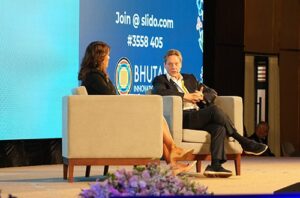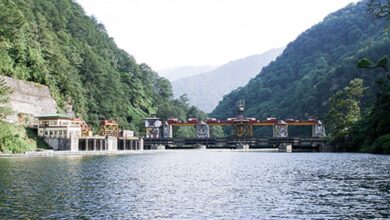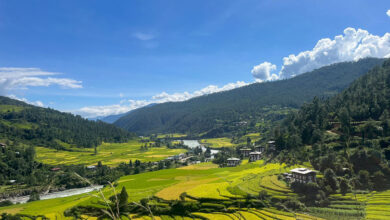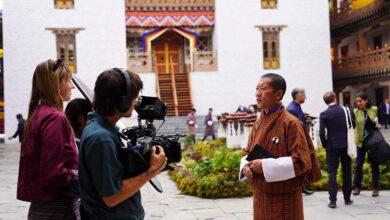Mining Titan Robert Friedland says Bhutan is not suited for mining but should focus on other strengths
During the session at the recent Bhutan Innovation Forum, Robert Friedland, founder of Ivanhoe Mines, shared a compelling vision for Bhutan’s potential in the global energy transition, emphasizing its unique geographical and cultural position.
He highlighted the country’s carbon-negative status and its vast hydroelectric potential, which, unlike large dams that have significant environmental impacts, utilizes run-of-the-river systems.
Currently generating approximately 3.5 gigawatts of power, Bhutan’s hydropower could fuel its own needs during monsoon seasons, but faces challenges during winter months, requiring electricity imports from India.
Robert Friedland shared, “Bhutan sells its electricity to India for under four cents, but when it needs to buy it back, the cost rises to over six cents. That seems unfair to me.”
Robert’s frank style of talking invited some laughs when he said most of the audience does not support mining and they are ‘idiots’ for not doing so as mining products is used for everything from growing food to cell phones.
Friedland urged Bhutan to harness its resources to foster a domestic green economy and attract global investment in technology and education. He pointed out that the country’s deep cultural roots in Mahayana Buddhism could serve as a guiding principle in developing sustainable practices while maintaining its rich heritage.
He also shared that Bhutan and other emerging economies have the chance to harness significant economic opportunities. However, they must also navigate the challenge of balancing resource extraction with long-term sustainable development.
“Mining is essential, but it needs to be approached thoughtfully. Unlike countries with vast copper reserves, Bhutan has unique assets—its rich tradition of Mahayana Buddhism, mindfulness, lush forests, and hydropower potential. This combination allows for a distinctive approach to development. Mining should occur in a sustainable manner, particularly in regions where environmental factors like rainfall and snow can complicate extraction efforts.”
Addressing the critical issue of energy demands, he noted that humanity needs to extract an unprecedented amount of copper in the coming years to meet renewable energy targets, underscoring the necessity for sustainable mining practices.
He warned against the environmental ramifications of traditional mining methods and advocated for a mindful approach to resource extraction that aligns with Bhutan’s values.
“Mining the Himalayas like in Bhutan is not a good approach. If mining is necessary, it should be done underground. Instead, Bhutan should focus on attracting visitors for mindfulness experiences.”
He called on Bhutan to mine Mahayana Buddhism instead and use that to make revenue.
With a focus on balancing economic development and sustainability, Friedland encouraged the integration of innovative technologies, such as geothermal energy, alongside hydropower to further reduce carbon footprints. He called for a global conversation on responsible resource management and urged support for Bhutan’s young and enlightened leadership in navigating these complex challenges.





